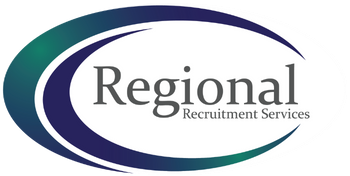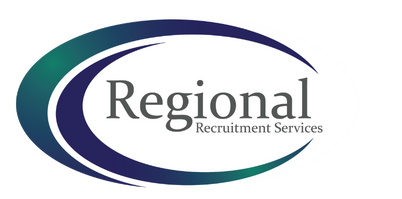The Career Planning Process
Career planning is the process of preparing for and developing your journey.
In many ways, it is similar to running a marathon. However, the finish line is your dream career. It’s a long process where you will be continuously learning, researching, comparing and taking action.
Whether you are a recently graduated student or already have experience in the working environment. The career planning process navigates and leads the way to personal and professional development. So, it should not be neglected.
Before you start your career, making a strategic plan is crucial. Every one of us has our unique way of exploring the working world. However, we are here to provide you with the five stages of the career planning process, to help you achieve your personal development goals.
In this Career Planning Process guide, we will talk about the five key stages:
- Understanding Yourself
- Understanding the Market
- Comparing and Evaluating
- Taking Action
- Setting a time frame and updating your career plan
Career Planning Process Stage 1: Understand Yourself
Before starting, taking a step back to understand yourself is essential. Here are five ways to assess your personality, skills and aspirations:
- Write down your strengths, weaknesses and your current skills
- Talk to your peers or colleagues to get their perception of you
- Get references from your tutor or previous employers
- Take an online personality test to have a better understanding of what work culture you will fit
- Think about what you are aiming for in your career
A Recruiter’s Tip for Interview: We’ve all heard of the phrase, “Hope for the best but prepare for the worst.” But, this is particularly true whilst planning your career. There will be many hurdles on the way. One of the barriers you might hit happens after your job interview. So, it’s essential to make time and learn how to handle interview rejection. Here are our top tips for dealing with interview rejection.
Career Planning Process Stage 2: Understand the Market
Once you are happy that you have completed Stage 1. It’s time to get a brief perception of the market you would like to enter.
When exploring your options, you are looking to gain a thorough insight into the industries as a whole. You need to assess past performance, future trends and identify the required qualifications. A vital part of this will be to use sources, such as:
- The Officer for National Statistics
- Newrooms
- Sector-specific blogs
- Social media groups
- Employer websites
This stage is a perfect opportunity to research the vacancies and employers in the industries that interest you. Try to focus on vacancies that match your skills and meet your current level of experience (entry-level or higher). Also, this is a chance to familiarise yourself with potential employers’ recruiting procedures. Which will prepare you for upcoming applications. Use this time to investigate the employer and see if they will provide you with the progression opportunities you desire.
Don’t forget to note all of your research (you will need this for the next stage).
Career Planning Process Stage 3: Comparison and Evaluation
In this stage, you are using the information you have collected to compare and evaluate it against one another.
The best way to complete this is to use a SWOT analysis. Which stands for Strengths, Weaknesses, Opportunities and Threats. A SWOT analysis will help you identify what you lack and avoid the risks you might encounter in your career or chosen industry. Your SWOT analysis should focus on the below:
- The industries or employers you might work with
- On you as an individual and your impact on these industries and employers
A Recruiter’s Tip for Thorough Evaluation and Comparison: One thing you can do is try different jobs based on your research. These roles can be temporary, contract, internships or voluntary. By experiencing the role, you’ll gain a deeper insight and learn the potential employer’s culture. Which will help you to weigh whether you will fit within it.
Career Planning Process Stage 4: Action
After you have created your SWOT Analysis, the next step will be to take action and write your career plan.
Start by setting achievable goals!
When setting your goals, you should apply the SMART technique. SMART stands for Specific, Measurable, Attainable, Relevant and Timebound. This method will assist you in developing your objectives, in a more effective and productive way. Whilst also providing you with a clear direction on how to implement your career plan.
After this, you will need to start acting on your plan. So, you will need to:
- Write your CV so that it is tailored to the requirements of the industry
- Apply for your ideal job opportunities
A Recruiter’s Tip for CV Writing: This step is always the hardest, even more so when you have never written a CV or are trying to change your career. But, it’s the first impression you give to a potential employer. So, it needs to be your best reflection. Here is our CV Writing Guide, which shows how to prepare or update your CV.
Career Planning Process Stage 5: Set a time frame and update your career plan
Just acting on your plan does not get you to the finish line. Your career plan is not a sprint; it’s an endurance race that you must monitor!
By using the best practice of setting SMART Targets, you will create time frames for your plan. However, you will need to keep track of your progress at regular intervals. Remember to check your plan and review your goals. To see you’ve achieved them or if they need to be adjusted based on the steps you have taken.
Remember, if you are uncertain about your plan, you can always get advice or suggestions from your peers, recruitment services, or potential employers.
Summary
The career planning process is a marathon. It takes time and effort. When you follow the above stages, you will be thoroughly prepared to grasp any upcoming opportunities and tackle the possible challenges on your career path.
Without planning or managing your career, you might miss opportunities that you want to pursue. Additionally, when competing with other applicants for your dream role, you need to be fully equipped and understand the market. In order to give you the edge that you need, to stand out from the crowd. The best way to do this is to start your career plan and keep it on track. And we are here to support you across the finish line.











